Welcome to the Amira-Avizo Software Use Case Gallery
Below you will find a collection of use cases of our 3D data visualization and analysis software. These use cases include scientific publications, articles, papers, posters, presentations or even videos that show how Amira-Avizo Software is used to address various scientific and industrial research topics.
Use the Domain selector to filter by main application area, and use the Search box to enter keywords related to specific topics you are interested in.
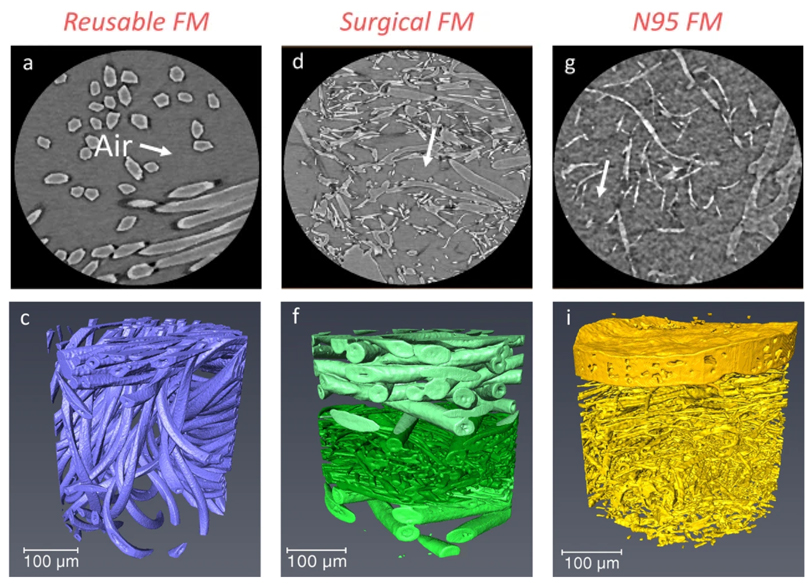
Microstructure analysis and image-based modelling of face masks for COVID-19 virus protection
Until March 2021, around 120 million coronavirus disease (COVID-19) infected cases and over 2.6 million deaths have been reported worldwide. […] Recent investigations have implied that face masks help to reduce the disease transmission and therefore slow down the growth of the epidemic curve. However, there are still ongoing debates on the efficacy of wearing masks […] since there is a general lack of information relating to the material structure of commonly used face masks.Read more
Wenjia Du, Francesco Iacoviello, Tacson Fernandez, Rui Loureiro, Daniel J. L. Brett & Paul R. Shearing
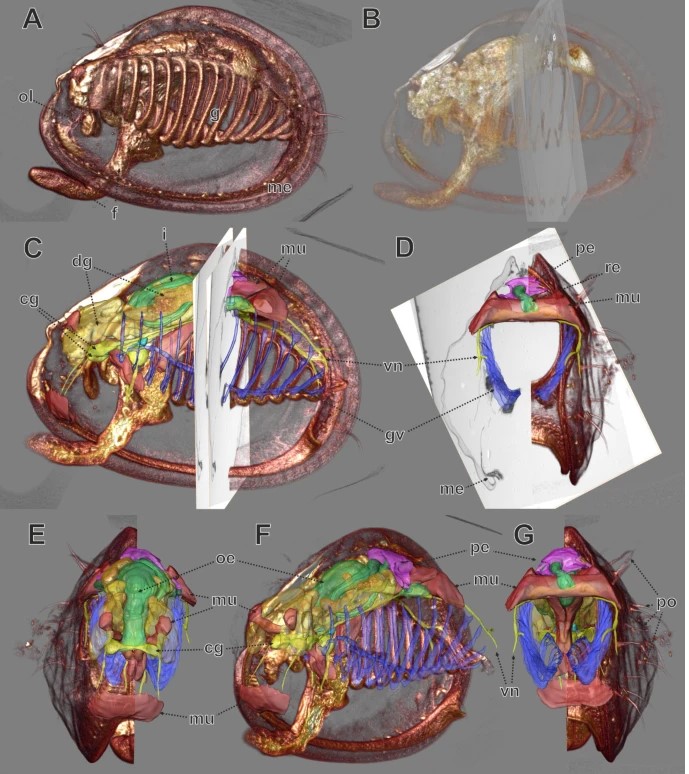
In biomedical research, a huge variety of different techniques is currently available for the structural examination of small specimens, including conventional light microscopy (LM), transmission electron microscopy (TEM), confocal laser scanning microscopy (CLSM), microscopic X-ray computed tomography (microCT), and many others. Since every imaging method is physically limited by certain parameters, a correlative use of complementary methods often yields a significant broader range of inform... Read more
Stephan Handschuh, Natalie Baeumler, Thomas Schwaha & Bernhard Ruthensteiner
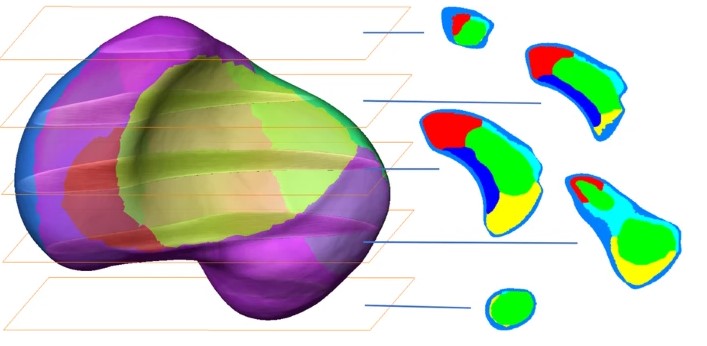
3D computational anatomy of the scaphoid and its waist for use in fracture treatment
A detailed understanding of scaphoid anatomy helps anatomic fracture reduction and optimal screw position. Therefore, we analyzed the size and shape variations of the cartilage and osseous surface, the distribution of volumetric bone mineral density (vBMD), and if the vBMD values differ between a peripheral and a central screw pathway?
Forty-three fresh frozen hand specimens (17 females, 26 males) were analysed with high-resolution peripheral quantitative computed tomography (HR-pQCT) ... Read more
Marc-Daniel Ahrend, Teun Teunis, Hansrudi Noser, Florian Schmidutz, Geoff Richards, Boyko Gueorguiev & Lukas Kamer
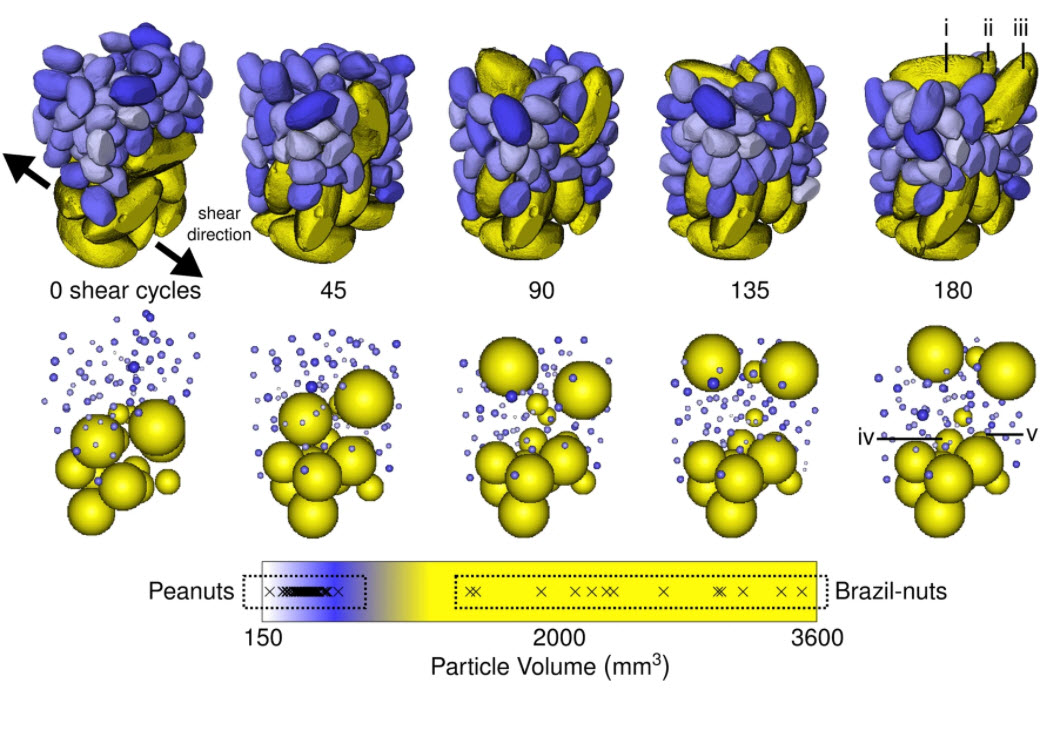
Scientists use Avizo to capture the complex dynamics of particle movement in granular materials
Scientists have for the first time captured the complex dynamics of particle movement in granular materials, helping to explain why mixed nuts often see the larger Brazil nuts gather at the top. This phenomenon, known as the ‘Brazil-nut effect’, has huge implications for industries where uneven mixing can critically degrade product quality. The findings could have vital impact on industries struggling with the phenomenon, such as pharmaceuticals and mining.
For th... Read more
Parmesh Gajjar, Chris G. Johnson, James Carr, Kevin Chrispeels, J. M. N. T. Gray & Philip J. Withers
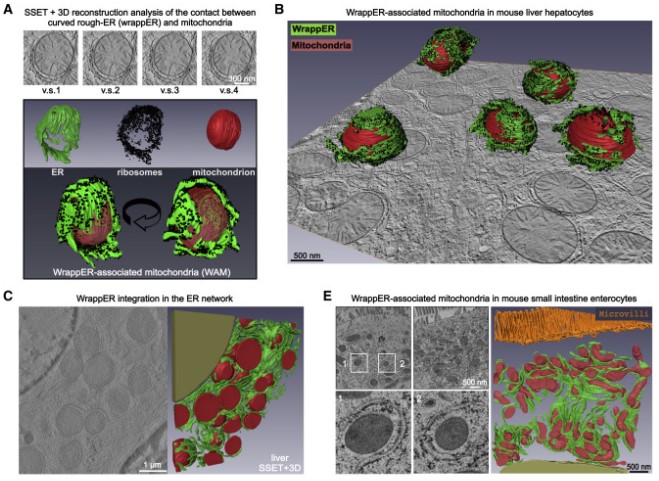
Mitochondria-rough-ER contacts in the liver regulate systemic lipid homeostasis
In this work, we studied mitochondria-rER contacts in vivo by serial section electron tomography (SSET) and 3D reconstruction analysis of cryo-fixed mouse tissue samples. We characterized this inter-organelle association as mitochondria tightly wrapped by sheets of curved rER (wrappER). Further, we used multi-omics and genetic approaches to obtain evidence that the wrappER is a distinct intracellular compartment and demonstrate the importance of wrappER-mitochondria contacts for v... Read more
Irene Anastasia, Nicolò Ilacqua, Andrea Raimondi, Philippe Lemieux, Rana Ghandehari-Alavijeh, Guilhem Faure, Sergei L. Mekhedov, Kevin J. Williams, Federico Caicci, Giorgio Valle, Marta Giacomello, Ariel D. Quiroga, Richard Lehner, Michael J. Miksis, Katalin Toth, Thomas Q. de Aguiar Vallim, Eugene V. Koonin, Luca Scorrano, Luca Pellegrini
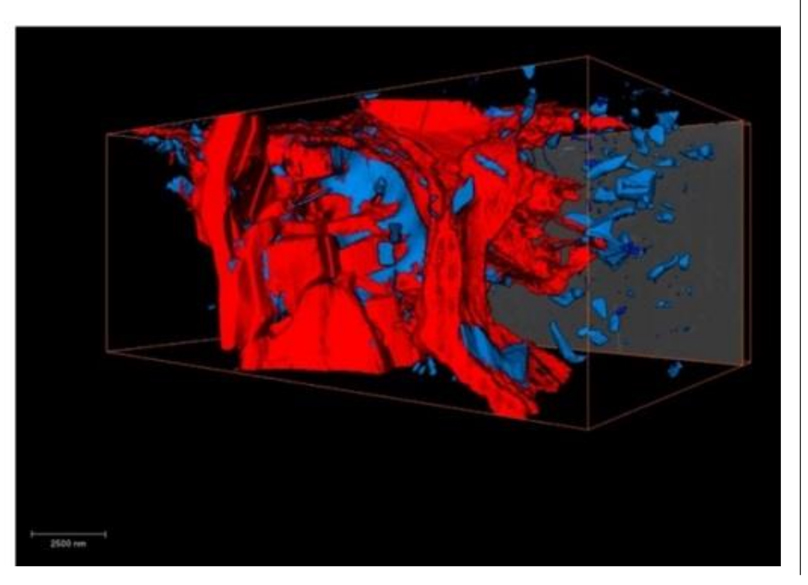
High market demands related to material quality and properties strongly influence redesigning of common safety loaded aluminum alloy castings. The quality of aluminum components and associated obtained mechanical properties are strongly dependent on the casting process and parameters, as well as on the chemical composition. Therefore, the redesigning of chemical composition of high-strength aluminum alloys becomes significant for safety critical structural components in automotive industry.Read more
Davor Stanić, Zdenka Zovko Brodarac, Letian Li
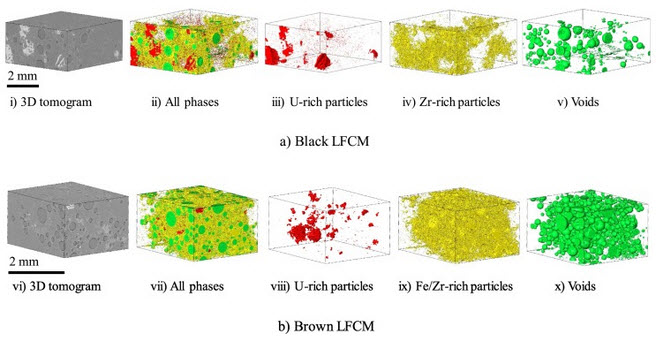
Decommissioning of the damaged Chernobyl nuclear reactor Unit 4 is a top priority for the global community. Before such operations begin, it is crucial to understand the behaviour of the hazardous materials formed during the accident. Since those materials formed under extreme and mostly unquantified conditions, modelling alone is insufficient to accurately predict their physical, chemical and, predominantly, mechanical behaviour. Meanwhile, knowledge of the mechanical characteristics of thos... Read more
C.Paraskevoulakos, J.P.Forna-Kreutzer, K.R.Hallam, C.P.Jones, T.B.Scott, C.Gausse, D.J.Bailey, C.A.Simpson, D.Liu, C.Reinhard, C.L.Corkhill, M.Mostafavi
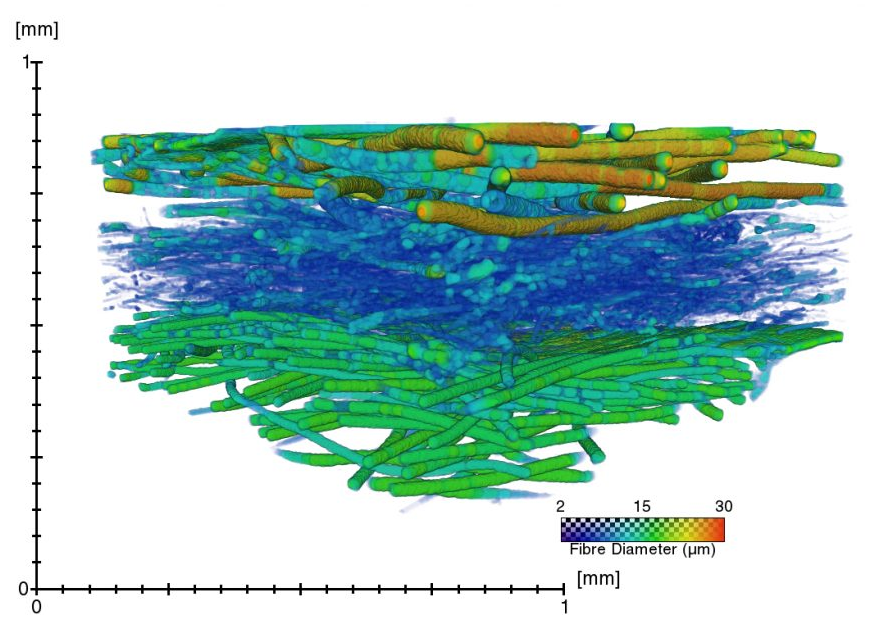
A virtual testing platform for filter materials and textile masks
In order to provide the population with consistent and science-based advice on preferred materials for face masks, we are characterizing the microstructure of different materials using X-ray microfocus computed tomography (microCT), and we use these datasets to simulate the pressure drop (i.e. measure for breathability). We validate our measurements with physically measured filter efficiency and pressure drop, and in this way, we try to develop a “virtual testing platform” for the charac... Read more
The ContrasTTeam of Prof. dr. Greet Kerckhofs, UCLouvain and MTM
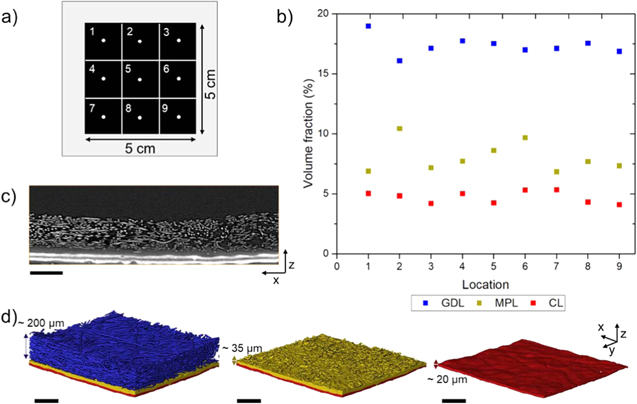
With the growing use of X-ray computed tomography (X-ray CT) datasets for modelling of transport properties, comes the need to define the representative elementary volume (REV) if considering three dimensions or the representative elementary area (REA) if considering two dimensions. The resolution used for imaging must be suited to the features of interest in the sample and the region-of-interest must be sufficiently large to capture key information. Polymer electrolyte fuel cells have a hier... Read more
Jennifer Hack et al 2020 J. Electrochem.
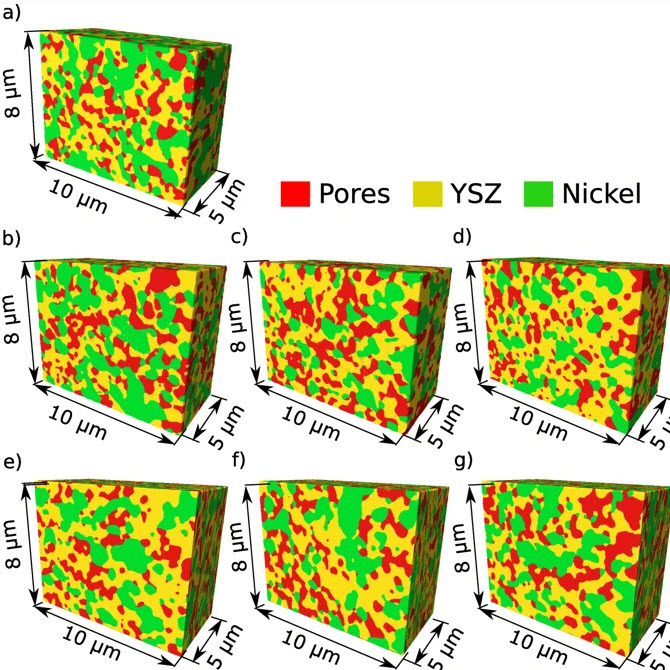
An Anisotropic Microstructure Evolution in a Solid Oxide Fuel Cell Anode
A solid oxide fuel cell (SOFC) is an electrochemical device that converts the chemical energy of hydrogen directly into electricity. A single cell usually has a form of a flat plate in which an impervious and dense ion-conducting electrolyte is sandwiched between two porous catalytic electrodes: an anode and a cathode. Fuel is fed to the anode side, and the air is supplied to the cathode. The gasses cannot mix to avoid unproductive combustion. Instead, gasses hit catalyst material, lose their... Read more
Grzegorz Brus, Hiroshi Iwai, Janusz S. Szmyd
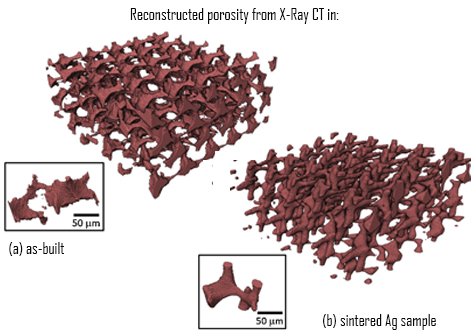
Towards digital metal additive manufacturing via high-temperature drop-on-demand jetting
Drop-on-demand jetting of metals offers a fully digital manufacturing approach to surpass the limitations of the current generation powder-based additive manufacturing technologies. However, research on this topic has been restricted mainly to near-net shaping of relatively low melting temperature metals. Here it is proposed a novel approach to jet molten metals at high-temperatures (>1000 °C) to enable the direct digital additive fabrication of micro- to macro-scale objects. […] ... Read more
Marco Simonelli, Nesma Aboulkhair, Mircea Rasa, Mark East, Chris Tuck, Ricky Wildman, Otto Salomons, Richard Hague
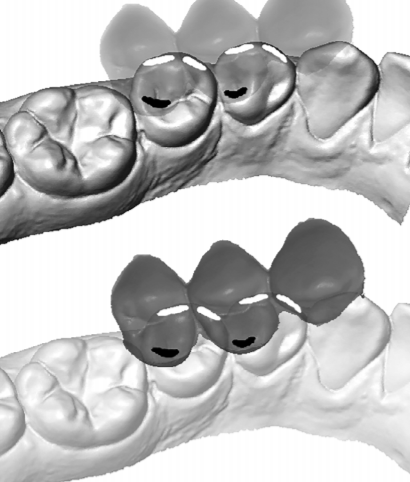
Variation of 3D outer and inner crown morphology in modern human mandibular premolars
This study explores the outer and inner crown of lower third and fourth premolars (P3, P4) by analyzing the morphological variation among diverse modern human groups.
We studied three‐dimensional models of the outer enamel surface and the enamel–dentine junction (EDJ) from μCT datasets of 77 recent humans using both an assessment of seven nonmetric traits and a standard geometric morphometric (GM) analysis. For the latter, the dental crown was represented by ... Read more
Viktoria A. Krenn, Cinzia Fornai, Lisa Wurm, Fred L. Bookstein, Martin Haeusler, Gerhard W. Weber
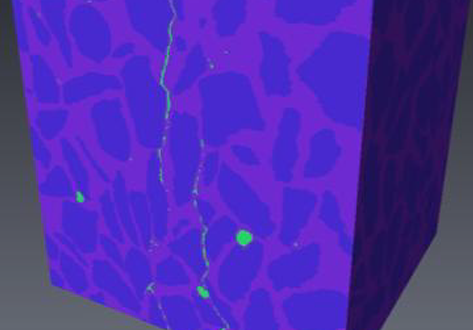
X-ray Computed Tomography (XCT) is a powerful technology that can accurately image the internal structures of composite and heterogeneous materials in three-dimensions (3D). In this study, in-situ micro XCT tests of concrete specimens under progressive compressive loading are carried out. The aim of the observations is to gain a better understanding of 3D fracture and failure mechanisms at the meso-scale. To characterise the fracture evolution as the deformation increases, two methods are use... Read more
College of Civil Engineering and Architecture, Zhejiang University | School of Mechanical, Aerospace and Civil Engineering, the University of Manchester | Manchester X-ray Imaging Facility | Oxford Martin School and Department of Materials
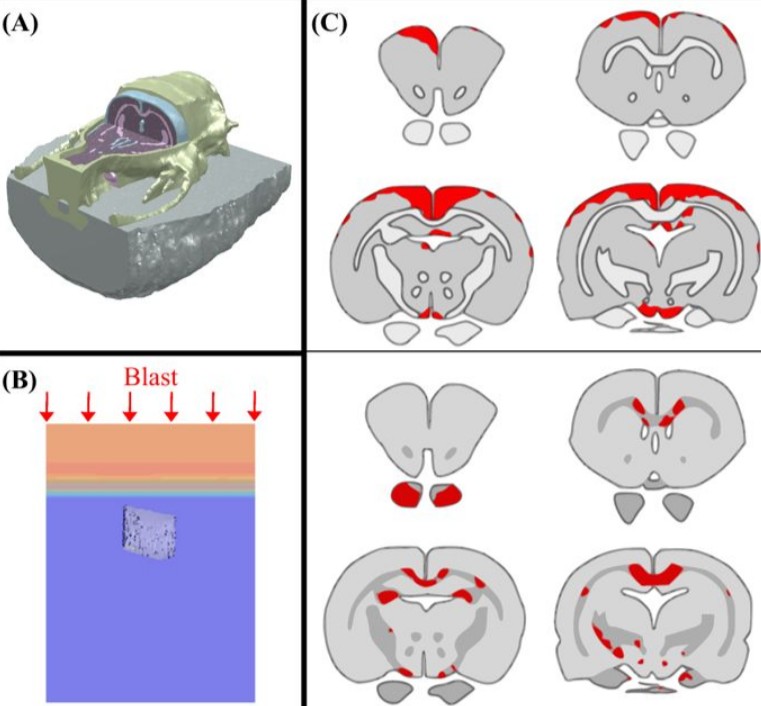
Cognition based bTBI mechanistic criteria; a tool for preventive and therapeutic innovations
Blast-induced traumatic brain injury has been associated with neurodegenerative and neuropsychiatric disorders. To date, although damage due to oxidative stress appears to be important, the specific mechanistic causes of such disorders remain elusive. Here, to determine the mechanical variables governing the tissue damage eventually cascading into cognitive deficits, we performed a study on the mechanics of rat brain under blast conditions. To this end, experiments were carried out to analyse... Read more
Daniel Garcia-Gonzalez, Nicholas S. Race, Natalie L. Voets, Damian R. Jenkins, Stamatios N. Sotiropoulos, Glen Acosta, Marcela Cruz-Haces, Jonathan Tang, Riyi Shi & Antoine Jérusalem
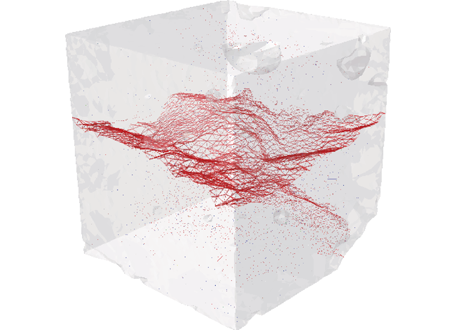
Three-Dimensional In Situ XCT Characterisation and FE Modelling of Cracking in Concrete
An improved understanding of 3D cracking in concrete can be achieved by multiscale experiments and numerical modelling based on realistic microstructures, for the development of materials with higher strength, durability, and fracture resistance.
Three-dimensional (3D) characterisation and modelling of cracking in concrete have been always of great importance and interest in civil engineering. In this study, an in situ microscale X-ray computed tomography (XCT) test was carried out to ... Read more
Wenyuan Ren, Zhenjun Yang, Rajneesh Sharma, Samuel A. McDonald, Paul M. Mummery
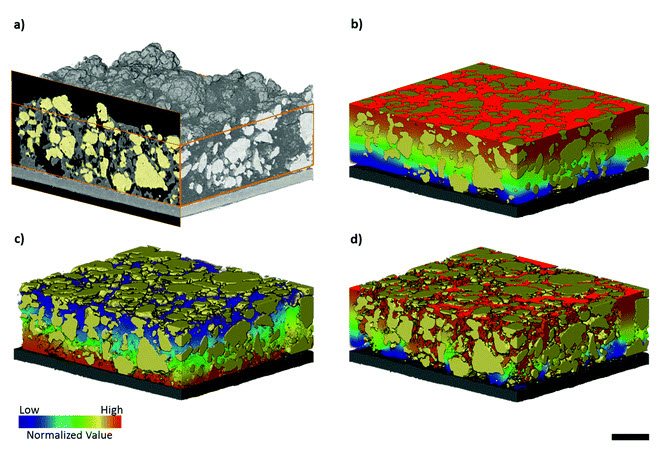
Three-dimensional image based modelling of transport parameters in lithium–sulfur batteries
An elemental sulfur electrode was imaged with X-ray micro and nano computed tomography and segmented into its constituent phases. Morphological parameters including phase fractions and pore and particle size distributions were calculated directly from labelled image data, and flux based simulations were performed to determine the effective molecular diffusivity of the pore phase and electrical conductivity of the conductive carbon and binder phase, D... Read more
Chun Tan, Matthew D. R. Kok , Sohrab R. Daemi , Daniel J. L. Brett and Paul R. Shearing
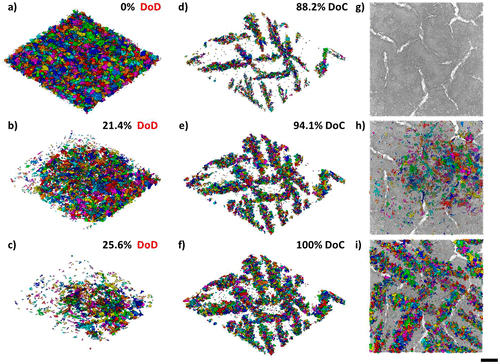
Four-Dimensional Studies of Morphology Evolution in Lithium–Sulfur Batteries
Lithium sulfur (Li–S) batteries have great potential as a successor to Li-ion batteries, but their commercialization has been complicated by a multitude of issues stemming from their complex multiphase chemistry. In situ X-ray tomography investigations enable direct observations to be made about a battery, providing unprecedented insight into the microstructural evolution of the sulfur cathode and shedding light on the reaction kinetics of the sulfur phase. Here, for the first time, the mor... Read more
Chun Tan, Thomas M. M. Heenan, Ralf F. Ziesche, Sohrab R. Daemi, Jennifer Hack, Maximilian Maier, Shashidhara Marathe, Christoph Rau, Daniel J. L. Brett, Paul R. Shearing
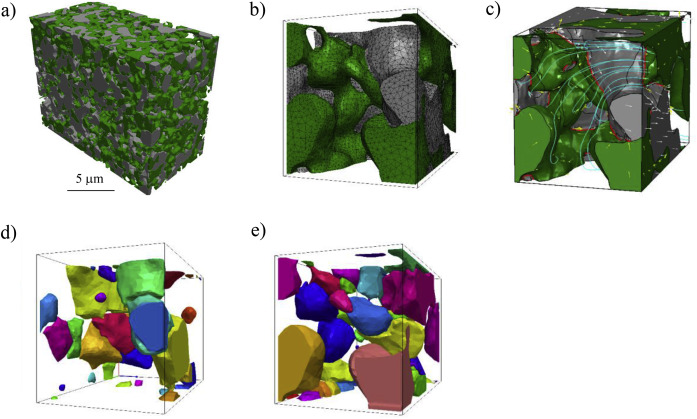
The electrode microstructural properties significantly influence the efficiency and durability of many electrochemical devices including solid oxide fuel cells. Despite the possibility of simulating the electrochemical phenomena within real three-dimensional microstructures, the potential of such 3D microstructural information has not yet been fully exploited. We introduce here a completely new methodology for the advanced characterization of inhomogeneous current distribution base... Read more
A.Bertei, V.Yufit, F.Tariq, N.P.Brandon
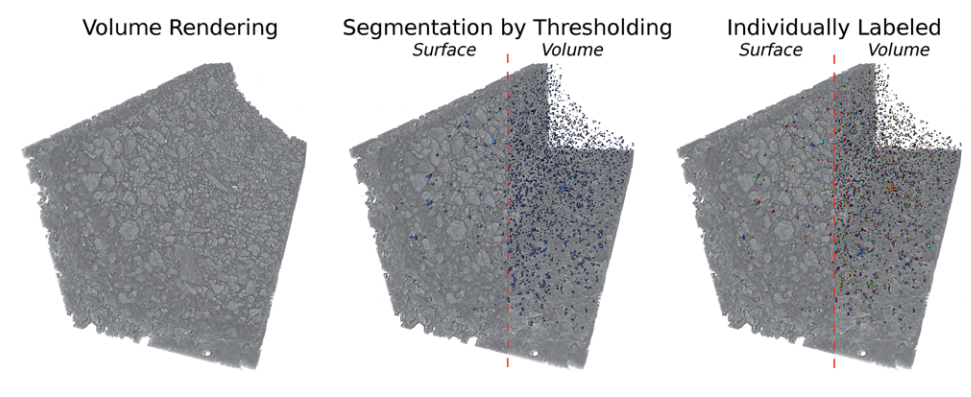
Aging of a Pt/Al2O3 exhaust gas catalyst monitored by quasi in situ X-ray micro computed tomography
Catalyst aging effects were analyzed using X-ray absorption micro-computed tomography in combination with conventional characterization methods on various length scales ranging from nm to μm to gain insight into deactivation mechanisms.
For this purpose, a 4 wt% Pt/Al2O3 model exhaust gas catalyst was coated on a cordierite honeycomb and subjected to sequential thermal aging in static air at 950 °C for 4, 8, 12 and 24 hours. The ag... Read more
Georg Hofmann, Amélie Rochet, Elen Ogel, Maria Casapu, Stephan Ritter, Malte Ogurreck and Jan-Dierk Grunwaldt
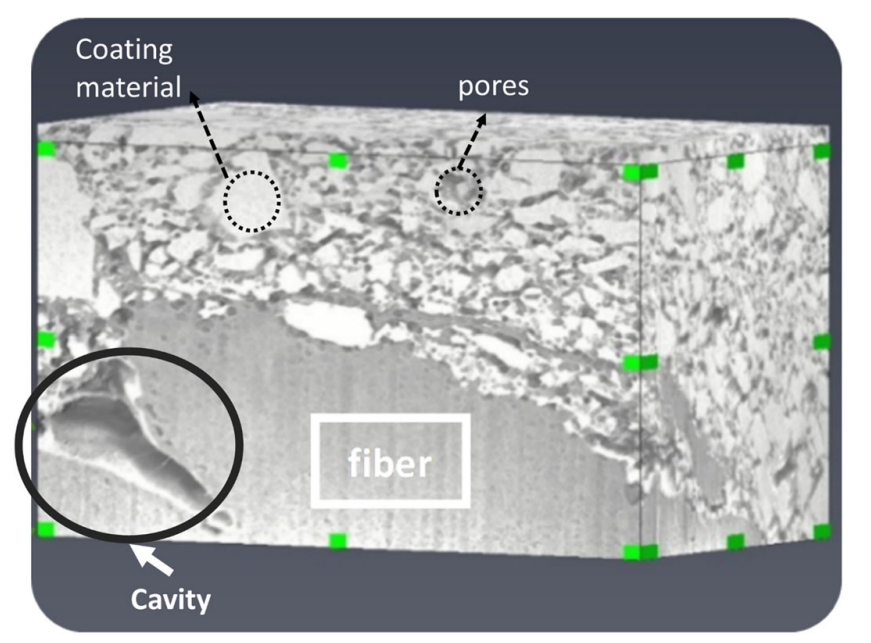
Characterization of the Interface Between Coating and Fibrous Layers of Paper
Coated paper is an example of a multi-layer porous medium, involving a coating layer along the two surfaces of the paper and a fibrous layer in the interior of the paper. The interface between these two media needs to be characterized in order to develop relevant modeling tools. After careful cutting of the paper, a cross section was imaged using focused ion beam scanning electron microscopy. The resulting image was analyzed to characterize the coating layer and its transition to the fibrous ... Read more
H. Aslannejad, S. M. Hassanizadeh, M. A. Celia
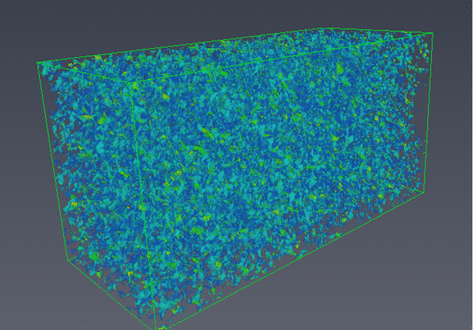
The development of focused ion beam-scanning electron microscopy (FIB-SEM) techniques has allowed high-resolution 3D imaging of nanometre-scale porous materials. These systems are of important interest to the oil and gas sector, as well as for the safe long-term storage of carbon and nuclear waste. This work focuses on validating the accurate representation of sample pore space in FIB-SEM-reconstructed volumes and the predicted permeability of these systems from subsequent single-phase flow s... Read more
Department of Chemical Engineering, Qatar Carbonates and Carbon Storage Research Centre, Imperial College London | Department of Applied Mathematics and Theoretical Physics, Cambridge University